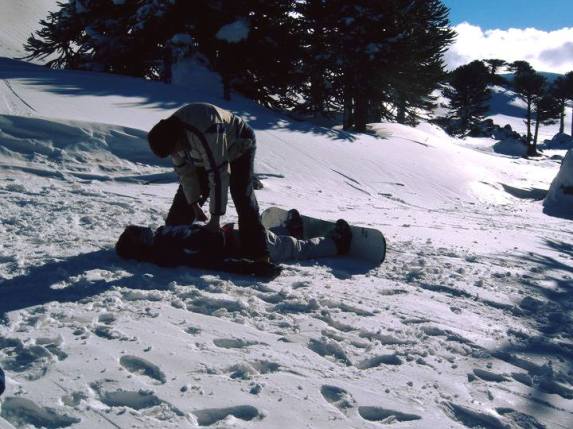Your Cart is Empty
🌎 Free Worldwide Shipping! 🌎

Credits go to Nico Pollo, TeamGetLost Ambassador:
His Website: https://nicopollo.com/
His Instagram: https://instagram.com/nico.pollo/
We are in the middle of the season, and fatigue (especially physical), begins to play a key role in the activities we do. Every time seems a little bit harder to start, the excuses become a constant, “the weather sucks”, “I’m sure everything is frozen”, “I’m tired”, “I work all day”, “today the weather is too great”…”Ok, brother, wth? Come on, go! That’s the worst excuse ever…” Immediately after, I see myself preparing my backpack.
This is the moment when motivation is crucial, whatever we are doing. Could be studying, working, doing paperwork, training, or, in my case, skiing.
A misleading question has been going around in my head the last week. “Are you going to ski today?” A part of me says, “OBVIOUS!”, While a small percentage of my psyche says “take the day off”.
I must admit that I’m not usually in favor of days off. If we want to improve in something, to get better, I think we have to “give it all” in every situation that comes our way. However, it is essential to know how to listen to ourselves, since often over-training tends to have awful results in our body.
In my case, I work 8 hours a day while standing, and I also ski at least 3 or 4 hours a day. It is more than understandable that the body asks us for a time off.
However, the thing goes beyond physical and psychological fatigue. Many times the hard part is to start, but once in movement, in the activity, all the excuses and doubts about what we do, take a back seat.

“The one who wants, looks for the way … the one who doesn’t, excuses”
This phrase has been part of my mental structure for several years now. It is very easy to give up, throw in the towel, hang the gloves or whatever you want to call it. The difficult thing is to keep going. But what brings greater benefits? Or, rather, what is more fruitful for our mind when it comes to achieving a goal? “What easy comes, easy goes,” they say …
That is why I began to inquire about motivation. Based on what I have studied in Psychology at university, two types of motivation come to mind:
As stated by David McClelland, in his book “Study of human motivation”, the motivation of an individual is due to the search for satisfaction of three needs:
• The need for achievement: related to tasks that pose a challenge, the struggle for success, personal improvement.
• The need for power: referred to the desire to influence others, to have an impact on the rest of the people.
• The need for affiliation: refers to the desire to establish relationships, to be part of a group, that is, to relate to others.
In summary, I could say that my sources of motivation are directly related to what was raised by this author. Personal improvement (I always say that my life – and also when it comes to skiing – is a constant learning), to be able to influence people (encouraging them to do a new or already known activity that personally brings me a lot of satisfaction), and, in this way, to be able to relate to others, meet people with the same passions, or awaken that “curiosity bug” in people who have not practiced the activity and wish to venture into the world of physical activity and life around nature.
As to finish, I would like to mention some “strategies and psychological keys to motivate oneself”, proposed by the social psychologist Xavier Molina, and add others that I have been learning for a few years and that have surprised me with the results. “Believe or burst”.
Applying these principles, we can make the mid-season slump disappear.
What motivates me to keep going? The possibility of continue learning
And how about you? Comment below what motivates you!
Comments will be approved before showing up.